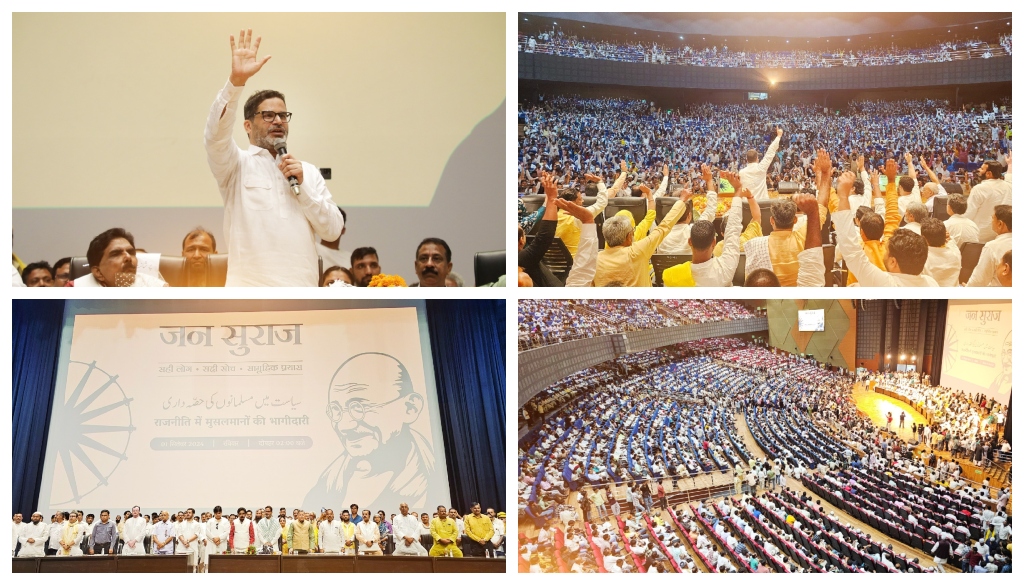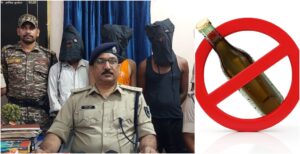Prashant Kishore Calls for Greater Muslim Representation in Bihar Politics, Pledges 40 Candidates in Upcoming Elections

Patna: Prashant Kishore, the founder of Jan Suraj campaign, has issued a clarion call to Muslim youth in Bihar, urging them to take an active role in the state’s political landscape. Speaking at a large conference held at Bapu Sabhagar in Patna, Kishore emphasized the importance of inclusive participation in the creation of a “new Bihar.” He announced that Jan Suraj would field 40 Muslim candidates in the upcoming assembly elections, fulfilling the party’s commitment to ensuring representation proportionate to the population across all levels of governance.
Kishor promised the Muslim community that Jan Suraj would ensure fair representation according to population demographics. He committed to fielding at least 40 Muslim candidates in the upcoming Bihar assembly elections and assured full participation in both the government and the party’s organizational structure. Out of the 25 leaders at the helm of Jan Suraj, Kishor pledged that four to five would be from the Muslim community.
Citing the Hadith and the Quran, Kishore warned that the community’s political weakness had led to their marginalization and urged them to reclaim their rights. He criticized the Rashtriya Janata Dal (RJD), which he claimed had exploited the community’s fears of the BJP to maintain power while sidelining their interests. “You have carried the flag of RJD for thirty-two years, but it has made you political slaves,” he said. “Now is the time to stand on your own feet and become a part of Jan Suraj.”
Addressing the audience, Kishor responded to criticisms from opposition parties by acknowledging his support for Narendra Modi in 2014 but emphasized his subsequent backing of parties and leaders opposing the BJP from 2015 to 2021. He highlighted that despite the BJP securing the government in Delhi with only 37 percent of the vote, 40 percent of Hindus voted against the party, reflecting a rejection of divisive politics. Kishor argued that this is the moment for communities to unite under the ideologies of Gandhi and socialism to secure a better future for their children.
Kishor criticized the current state of Muslim representation in Bihar’s legislative assembly, noting that despite comprising 18-19 percent of the population, only 19 Muslim MLAs are present. He also addressed the perceived collapse of the Yadav-Muslim electoral alliance in Bihar, noting that while Muslims continue to vote loyally for the RJD, Yadavs are increasingly supporting the BJP. Kishore urged the community to rethink their political strategy and warned against the manipulation of their vote by entrenched political interests.
Kishor concluded by urging the community to vote not for him, but in the name of their children’s future, emphasizing the need for political engagement to ensure their rights and opportunities in Bihar.








